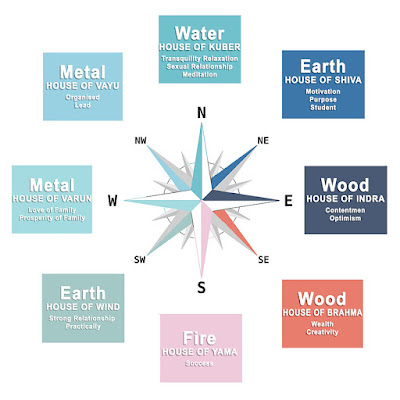What is VAASTU SHASTRA?
Vastu Shastra is an archaic Indian Vedic science architecture that maintains the rules of development of structures with the ultimate goal that they are compatible with climate or nature. The settlement by the authorities is accomplished by dealing with the progress of vast energies through and around the Vastu for office.
Presentation of Vastu
What is Vasu Arms Mu?
Vastu Shastra, an old Indian science built by centuries-old Indian holy people and sages, put forward the rules for the development of structures and sanctuaries and was drilled for quite a long time.
Vastu Shastra, an essential piece of Indian engineering, has its foundations spread across Indian philosophy, mathematics, geography, geology, religion, and thought, factors affecting the site of Vastu for office, for example, geography, roads, structures, around the Sun. Of goods, an attractive area of earth, cardinal heading, the energy field of the earth, and components of nature.
Vastu in the real sense is "HOUSE" or the symbol of residence of the people and includes:
- Land - refers to the plot or degree where the structure is proposed.
- Prasad - Compound consists of dividers and structures that are worked inside the land (site).
- Yana - All (chariot) vehicles mean vehicles abandoned inside the land (site).
- Shayna - Recalls all the goods and utensils for the composition (prasadam).
ures, thus furthering the prosperity, harmony, and flourishing of the occupants.
According to Vastu for office, when structures are on top of basic astronomical parameters, they become a piece of the essential structure of the universe and compromise with it. These positive vibrations are acknowledged to be positively influenced by the occupants.
It is a good decision that a properly planned home is one that has stylish, cleanliness, privacy, and a place to hang out and thus enjoy life. Those living in such a house would be excited and satisfied, whereas, one would not agree to live in an inadequately planned house and would later create anxiety in the minds of the occupants.
Vastu for office exploits and controls common properties like sun, wind, wind, and so forth and the geology of the site, common pathways, trees and plants, water sources, various structures and structures to save positive energy and flora, and so on. In a way, there is harmony between man, nature, and its built climate.
Vastu Shastra and link to the universe
As we as a whole realize that the Sun is the main heavenly body that transmits light and heat and is the explanation behind the presence of life on Earth; This is why Surya is known as the "soul of the universe" in old Indian writings.
The standards of Vastu Shastra allow people to use the infinite energy of the Sun in the most ideal way for Vastu for office.
Earth, which is our planetary home, resembles a mother, and is a treasure for all soles and pleasure that humans cannot find anywhere else.
The laws of vast Vastu Shastra give human beings the right to draw on the wider portion of Mother Earth for best results.
If you have misused the Vastupurusha Mandal and at that point, I am certain that you have understood above this point, otherwise I ask you to read it, here is the connection; Vastu for office and Vastu Consultant.
Benefits of Vastu Shastra
Many elements oversee a person's life; Their fate, deeds, and the vast where they live and work.
Apart from the karma of the person, luck, and Vastu for office influence the quality of life.
If Vishnu is poor, but the destiny of a person is acceptable at that point, the results that are earned can go from bad to fair; While Vishnu is acceptable and fate is disturbing, the bad effects are minute.
While constructing a house, shop, or any other structure it is necessary to follow the rules of Vastu Shastra as it changes the predetermination of man for advancement.



Comments
Post a Comment